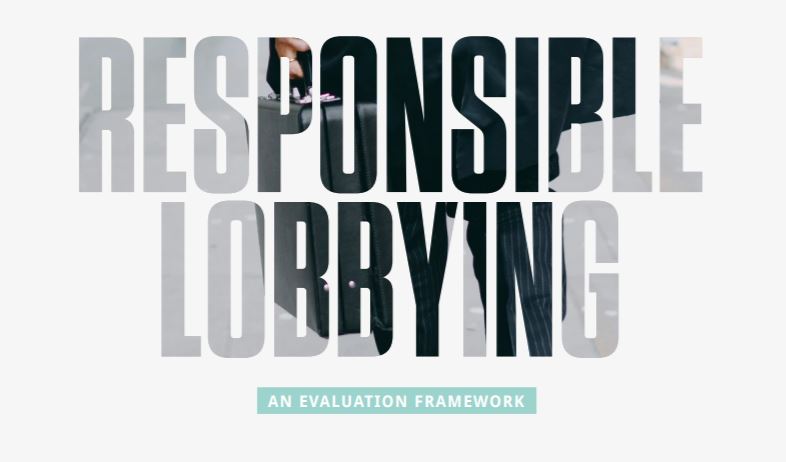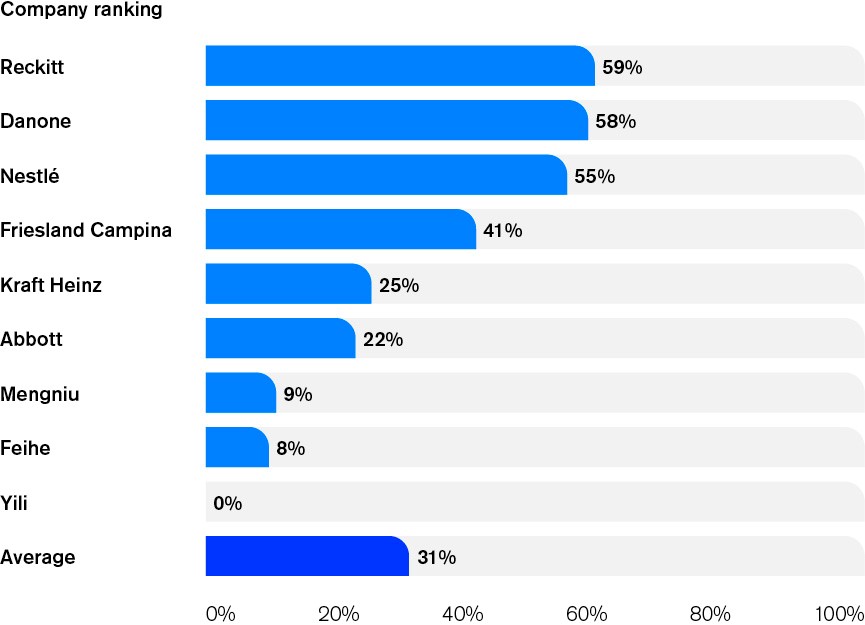
Spotlight on lobbying
Lobbying is a well-established and widespread facet of the political process. When exercised properly, it can strengthen accountability and participation in government, and the legislative and regulatory system. However, when exercised improperly, it serves well-financed special interests and damages political legitimacy.
A cause for concern among stakeholders whose goal is to protect and encourage breastfeeding, and infant and young children’s nutrition, is that most countries have not yet adopted legal measures to give full effect to the International Code of Marketing of Breast-milk Substitutes (BMS); in 2020, the measures of only 25 ‘substantially align to the Code’. This comprehensive set of recommendations to restrict the marketing of BMS was adopted in 1981 by the World Health Assembly (WHA). It has since been amended and augmented by many subsequent WHA resolutions. (Together these documents are referred to as ‘The Code’).
Many public health advocates believe that one of the reasons that so few countries’ laws and regulations fully implement The Code is lobbying by BMS manufacturers. They advance two key arguments for curtailing lobbying by companies and their representative organizations: 1) they have a conflict of interest: they are motivated primarily to protect and increase their profits and shareholder returns, which are predicated on ever-greater sales of their products; 2) companies have more resources to dedicate to influencing policymakers, and therefore have a disproportionate effect on the process.
However, many of the world’s largest BMS manufacturers have recently made public statements in support of the adoption of legislation and regulations to implement The Code, in part or in full. These companies see regulation as a way to ‘level the playing-field’ because it is likely to be less commercially damaging than unilaterally adopting policies to implement The Code when their competitors don’t.
The Access to Nutrition initiative (ATNi) is aware of increasing interest among many stakeholders in companies’ lobbying and influencing activities – in many sectors, on many issues. It is therefore likely that baby food companies will be scrutinized more closely about such activities in future, both in terms of the overall corporate stance that they take and their activities within each market in which they operate or enter.
As a first step towards exploring the topic of lobbying in relation to The Code, this report evaluates the lobbying policies, management systems and disclosure of the world’s nine largest BMS manufacturers. Together they account for around 54% of global market share in this category. It is the first report that ATNi has published focusing exclusively on lobbying. The aim of the research is to better understand approaches to lobbying by BMS manufacturers and the extent to which their policies and practices align most fully to the newly developed Responsible Lobbying Framework (RLF).
Full report
The methodology used to assess companies was developed by ATNi based on the RLF which was developed by a multi-stakeholder group of companies and Civil Society Organizations (CSOs) during a multi-year dialogue process facilitated by the Meridian Institute. As responsible lobbying is an emerging and relatively new concept, the RLF represents the ‘gold standard’ in relation to responsible lobbying. It can be understood as a roadmap towards best practice that users work towards over time.
It is important to note that this report does not evaluate companies’ actual lobbying practices in countries around the world, or in relation to international standard-setting bodies like Codex Alimentarius or bodies such as the WHO, WHA, WTO or others.
The scoring and ranking presented is based solely on information publicly available by 31st July 2020. The evaluation focuses on three elements of lobbying by BMS manufacturers: policy commitments, management systems, and disclosure. Information published by third parties is not included nor is confidential information provided by the companies to ATNi (whereas both types of information are included in ATNi’s Global and Spotlight Indexes).
The report therefore does not provide any insights into how these companies have lobbied around the world or on which topics they have lobbied in relation to breast-milk substitutes. In future, ATNi hopes to be able to explore and report on these important dimensions of lobbying.
Scores are presented in percentages, based on the scoring system outlined in the report. A score of 100% would indicate that a company:
- Has a policy that embodies all of the key commitments set out in the methodology in terms of its approach to lobbying.
- Has effective management systems to implement all of those commitments.
- Publishes its policy and other information to provide transparency about what it lobbies on, and how.
It is important to note that while companies’ disclosure on this topic is to a large extent voluntary it may also be influenced – in terms of what can and cannot be published – by the requirements of national regulatory authorities, particularly those in which the company is headquartered.

In order to improve their policies, all companies are urged to review the RLF, look at the leading companies’ policies, and the indicators in the policy section of the methodology, and embody those commitments in their own policies.
In terms of management systems, many companies will already have in place functions or processes to implement ethics, anti-bribery and corruption and similar corporate commitments. Such systems can simply be expanded or adapted to ensure that the company’s responsible lobbying policy is delivered.
Transparency is critical in relation to lobbying. There is ample scope for companies to improve their disclosure. Currently, companies mainly disclose their lobbying activity and spending via national or regional transparency registers where mandated by regulation. This does not usually provide a complete picture of a company’s lobbying activities in all of its markets. ATNi encourages them to directly report such activity on their own websites.
Companies are encouraged to base their disclosure on the ‘show, don’t tell’ principle. They currently publish few practical and worked examples of how policies and systems work in practice; many more such examples would give their stakeholders more confidence in the sincerity of, and follow through on, their commitments.
BMS-specific disclosure is currently lacking. While several examples were found of companies’ lobbying on the broader sustainability or corporate agenda in their reports and on their websites, few were found on BMS issues specifically. Companies are encouraged to start making such references, as a sign that they view this area as a key priority in respect of their responsible lobbying.
The report shows there are clear and relatively easy steps that many companies can take to improve their lobbying policies, management systems and disclosure. In most cases, they can find inspiration within their sector while also seeking to emulate emerging practice in other sectors – particularly in the oil, gas and mining sector in relation to lobbying related to climate change – that can be adapted to this topic. While some of the BMS manufacturers are already communicating and to some extent demonstrating their commitment to lobby responsibly, this review shows they all have significant room to improve.
ATNi urges them to make public commitments in response to this report that demonstrate their intention to support in all markets in which they operate the adoption of national legal measures that implement The Code in full to contribute to protecting the health of mothers and babies around the world. ATNi hopes this report will also be a valuable source of information for stakeholders with an interest in this topic.
* The findings of this report regarding companies’ performance rely on publicly available information only. Several factors beyond the companies’ control may impact the availability of information, such as differences in disclosure requirements among countries or capacity constraints within companies, amongst others the Covid-19 pandemic. Therefore, this report may not represent the full extent of their efforts.
Further information on ATNi's BMS work
